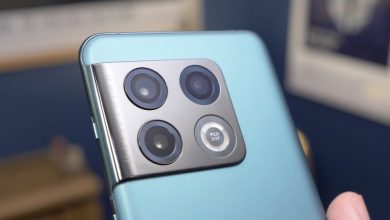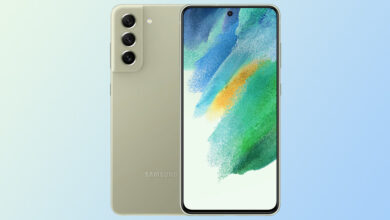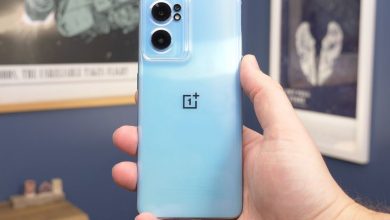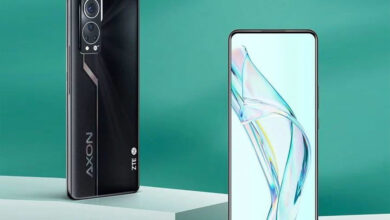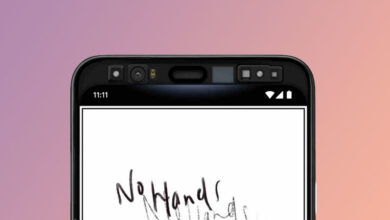The best and worst Nokia phones
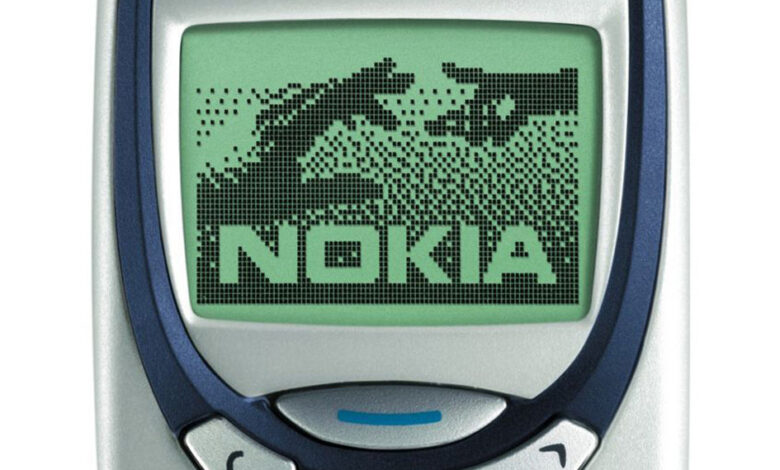
[ad_1]
(Pocket-lint) – Nokia made a brilliant return in 2016 and started competing amongst the big boys with its Android phones. Although the new phones might not be the rock-solid, meme-worthy 3310, it’s still possible to say that owning a Nokia phone is something to be proud of.
HMD Global is behind the revitalisation, using the Nokia branding on smartphones from entry-level to flagship devices. And it is using some of the heritage of the phone manufacturer’s past as inspiration.
That’s why we’ve handpicked some of our favourite Nokia mobile phones from the last few decades. We’ve also chucked in some stinkers too.
So here are the best and, frankly, worst and weirdest Nokia handsets we all remember.
Nokia Mobira Talkman (1985)
From 1985 to 1992, Nokia manufactured the Mobira Talkman line of crazy-large cell phones you could carry with you (if your arms were strong enough to lift the massive block/suitcase attached to the phone).
It might look like a monster, but this was the start of things to come.

Nokia Cityman (1987)
The Cityman was one of the first compact phones. It became famous in 1987 when Mikhail Gorbachev, then-president of the Soviet Union, used a Cityman 900 to call Moscow during a press conference.

Nokia 1011 (1993)
The 1011 is famous for being the first mass-produced GSM phone. Again, not much to look at, but phones had certainly come a long way from their chunky origins.

Nokia 8110 (1996)
The 8110 gained notoriety as being the first phone with a slider form factor, but the design’s prominent curvature earned it the nickname “banana phone”.
It was also popular at the time due to an appearance in the hands of Keanu Reeves in The Matrix.

Nokia 9000 Communicator (1996)
The 9000 Communicator was a messaging phone and the first phone under the Communicator series. It is famous for being used by actor Val Kilmer in the remake of The Saint as well as by actors Anthony Hopkins and Chris Rock in the film Bad Company.
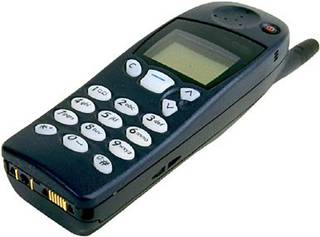
Nokia 5110 (1998)
The 5110 was made with business-consumers in mind, though it’s most remembered today for being one of the first phones to feature an addictive game called Snake.

Nokia 3210 (1999)
The 3210 was notable because it introduced the idea of colourful, interchangeable covers. There are claims over 160 million units were sold, making it one of the most popular and successful phones in history.

Nokia 7110 (1999)
The 7110 is nick-named “The Swordfish Phone” because it was used by actor John Travolta in the film Swordfish. It was also the first mobile phone to come with a WAP browser.

Nokia 8210 (1999)
The 8210 was the smallest and lightest Nokia mobile phone available when it launched and came with colourful, interchangeable covers.

Nokia 3310 (2000)
Perhaps the most iconic of all Nokia handsets, the 3310 was the phone that really took the interchangeable covers craze to all-new levels. It was also a hardy device – we know as we accidentally lobbed a fair few of them across car parks and down streets, but they continued to work.

Nokia 6310 (2001)
Business types loved the 6310 and 6310i (and the similar looking 6210 before them). It was more professional looking than the 3310, but still offered a degree of customisation in an interchangeable plate at the bottom. The “i” version added a backlit screen and tri-band connectivity.

Nokia 7650 (2001)
The 7650 was the first Nokia smartphone with Symbian OS.

Nokia 5510 (2001)
The 5510 featured a full QWERTY keyboard and a digital music player. It even had 64 MB memory for storing audio files. Tonnes of room, right? (Sarcasm.) This phone appeared during the era when more physical buttons was a good things.

Nokia N-Gage (2002)
The N-Gage was Nokia’s attempt to win over GameBoy users. It was a gaming device and mobile phone in one, though gamers scoffed at the phone and described it as looking like a taco.

Nokia 3600/3650 (2002)
The 3600/3650 was also the first phone in North America with an integrated camera. It was also different due to its circular keypad.

Nokia 6800 (2002)
The 6800 was marketed as a messaging phone because of its unusual fold-out QWERTY keyboard. Anyone would think Nokia had an obsession with physical buttons at this point.

Nokia 5100 (2002)
The 5100 was a rugged device with a rubber casing and built-in FM stereo. Despite being designed to be rugged, it wouldn’t replace the 3310 in people’s memories as the strongest phone ever produced.

Nokia 3300 (2003)
The 3300 was marketed as music playing phone but also featured a QWERTY keyboard.

Nokia 7600 (2004)
The 7600 had a teardrop form factor. It was aimed at the fashion market and featured interchangeable covers. Another in a line of quirky shaped phones from Nokia that showed the company wasn’t afraid to innovate and do things differently.

Nokia 7280 (2004)
The 7280 was also called the “lipstick” phone. Announced as part of Nokia’s Fashion Phone line, it had black, white and red styling as well as a screen that transformed it into a mirror. Weirdly futuristic looking and certainly another unusual smartphone.

Nokia 7710 (2005)
The 7710 was a smartphone widely known as being Nokia’s first device with a touchscreen.

Nokia N90 (2005)
The N90 was another phone under the N-series but stood out for its swivel design that transformed into four different modes.

Nokia 8800 (2005)
The 8800 was a slider phone. It was different in that it had a stainless-steel housing and a scratch-resistant screen.

Nokia 1100 (2005)
The 1100 was a basic GSM mobile phone. Nokia claimed in 2011 that the phone was once owned by 250 million people, making it the world’s most popular phone at that time.

Nokia 3250 (2005)
The 3250 was a unique mobile phone that featured a twist design, traditional phone keypad, camera, and dedicated music control keys.

Nokia 6280 (2005)
The 6280 was another 3G mobile phone. It had a slide form factor and 2.2-inch colour TFT screen.
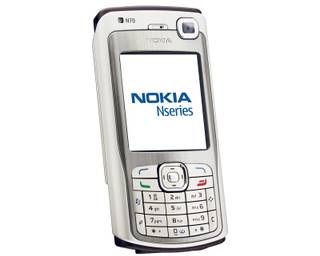
Nokia N70 (2005)
The N70 was a 3G mobile phone. It was announced as part of Nokia’s brand new line of N-series multimedia phones. We thought it was a feature-packed phone for sure but wondered about the lack of QWERTY keyboard.

Nokia 5300 (2006)
The 5300 was reportedly the most popular (in regards to the number of units sold) of all the XpressMusic phones, a line of Nokia phones that was designed for music playback.

Nokia N81 (2007)
The N81 was marketed as a mobile gaming device – similar to the 2003 N-Gage – and was notable for being the only N-Gage 2.0 device with special gaming keys.

Nokia N95 (2007)
Coming with Wi-Fi, Bluetooth and 3G connectivity, the Nokia N95 was a truly “smart” phone for its day. The battery took some bashing however, thanks to all the tech crammed inside, and it needed charging often.

Nokia 1280 (2010)
Despite a clear demand for everything smart, Nokia went ahead with this affordable ultrabasic dual-band GSM mobile phone… in 2010.

Nokia 808 Pureview (2012)
The 808 was Nokia’s last Symbian-powered smartphone. It was also the first phone to feature Nokia’s PureView Pro technology.

Nokia Lumia 1020 (2013)
Described as a Windows Phone 8-powered cameraphone, the 1020 notably featured a PureView Pro camera with a 41-megapixel image sensor. It was also the last Nokia phone made before Microsoft announced it would acquire Nokia’s phone business.

Nokia 3310 (2017)
And this is the new Nokia 3310, as launched in 2017. It is also a simple feature phone, rather than a smartphone, but has a full colour screen and is much slimmer than the original. There’s even a recent 4G upgrade available too.

Nokia 9 PureView (2019)
The Nokia 9 PureView is bonkers – it has five cameras aimed at delivering a very unique camera solution. That came about thanks to a close collaboration with Light, who produced a 16-camera device, the L16. But the Nokia 9 PureView is appealing for other reasons too, not least of which is a much more palatable price when compared with other flagships being released in 2019.

Nokia 5.3 (2020)
The Nokia 5.3 continued the company’s trend of creating very good mid-range and budgets phones packed with features at a reasonable price.
Writing by Maggie Tillman and Adrian Willings.
[ad_2]
Source link



